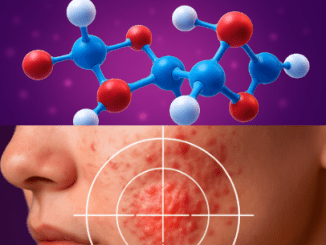
Why Sexual Activity Matters More Than You Think
For centuries, sex has been seen as a natural and joyful part of life. Beyond pleasure, it strengthens relationships and contributes to emotional balance. But recent research suggests something more striking: a lack of sex in men may not just affect mood—it could have serious consequences for long-term health. From heart disease to cognitive decline, scientists are uncovering surprising links between sexual inactivity and measurable health risks.
Groundbreaking Research on Sexual Inactivity and Men’s Health
One landmark study, Declines in Sexual Activity and Function Predict Incident Health Problems in Older Adults (2020), tracked thousands of men and women over four years. The results for men were eye-opening:
- A 41% higher chance of developing chronic illness among those who lost sexual desire.
- A 63% greater risk of cancer in men who reported declining desire.
- Men with erectile dysfunction faced a 73% higher risk of cancer and 129% higher risk of heart disease.
Another study in The Journal of Sexual Research (2023) highlighted the connection between sex and brain health. Men who were sexually inactive showed faster cognitive decline compared to sexually active peers. Researchers believe that sexual activity boosts blood flow, triggers endorphins, and supports hormone balance—all factors linked to sharper memory and slower brain aging.
Adding another layer, a 2021 study in The Journal of Sexual Medicine showed that poor sleep and erectile problems feed into each other, creating a cycle that harms both sexual and overall health. Taken together, the evidence points to one conclusion: changes in sexual activity may be more than personal—they’re often early warning signs of deeper health issues.
What’s Happening Inside the Body?
So, why does sex—or the lack of it—matter so much? Scientists believe several factors are at play:
- Exercise effect: Sex is a physical activity that raises the heart rate, improves circulation, and burns calories. Without it, men lose some of these protective cardiovascular benefits.
- Hormonal balance: Regular sex boosts testosterone, supporting muscle mass, bone density, and mood. A decline may lead to lower testosterone, increasing health risks.
- Stress relief and intimacy: Emotional bonding and endorphin release from sex help protect against depression and anxiety, both linked to physical illness.
In short, a drop in sexual activity could signal declining health, while sexual wellness may be a mirror of overall vitality.
Video : Dr. Nicole Clark on surviving a sexless marriages
The Psychological Impact of Sexual Inactivity
Beyond the physical, men also face emotional challenges when sex becomes less frequent. Sexual intimacy often strengthens self-esteem, reduces stress, and reinforces social bonds. Without it, some men may feel isolated or struggle with relationship strain—two factors strongly tied to health decline. It becomes a complex cycle: poor health reduces sexual activity, and reduced sexual activity worsens health.
Healthy Alternatives to Support Men’s Well-Being
The good news? Even if sex isn’t possible or frequent, men can still take steps to protect their health. Here are five proven ways to substitute some of the physical and emotional benefits of sex:
1. Stay Physically Active
Regular workouts mimic many of sex’s benefits—better circulation, hormone regulation, and endorphin release. A 30-minute walk, jog, or weightlifting session can go a long way.
2. Prioritize Quality Sleep
Since poor sleep is linked to erectile dysfunction, aiming for 7–9 hours of rest each night helps restore sexual and overall health. Simple steps like avoiding late-night screens or creating a sleep routine can make a difference.
3. Strengthen Social Bonds
Close friendships and family connections lower stress and reduce loneliness. Even pet companionship can mimic some of the psychological benefits of intimacy.
4. Support Testosterone With Nutrition
Foods rich in zinc (pumpkin seeds, oysters), omega-3 fatty acids (salmon, walnuts), and healthy fats (avocados, olive oil) help maintain healthy hormone levels. Avoiding processed foods reduces inflammation that harms cardiovascular health.
5. Manage Stress Through Mindfulness
Meditation, deep breathing, or yoga reduces cortisol—the stress hormone that lowers testosterone. Just ten minutes of mindfulness daily can create lasting benefits.
When to See a Doctor About Sexual Health
Changes in sexual desire or function aren’t just personal—they can be early signals of larger health issues. If problems persist, it’s wise to seek medical evaluation. A doctor can rule out conditions like diabetes, heart disease, or hormonal imbalance and provide targeted treatments.
Video : Facts: The Hidden Dangers of Sexless Marriages
Conclusion: Rethinking Sex as a Health Factor
Sex is often treated as a luxury or a private matter, but research is proving it’s also a vital part of men’s health. From reducing the risks of cancer and heart disease to protecting brain function, sexual activity plays a bigger role than many realize. Still, the story isn’t only about sex—exercise, good sleep, nutrition, stress management, and emotional connection can help fill the gap when intimacy is limited.
The takeaway? Pay attention to changes in sexual health. They’re not just about pleasure—they may be a window into your overall well-being. In other words, your body might be whispering through your bedroom life long before it shouts through serious illness.


